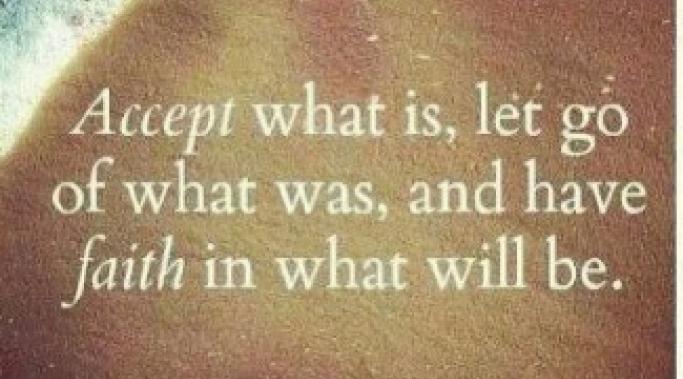Confronting weight gain on psychiatric medications is a major problem for many people consuming these types of medicines (Weight Gain in a Pill). It is almost as if the more your mental health improves, the more weight you gain. However, psychiatric medication weight gain can be coped with.
Living With Mental Illness
In a society that demands a perfect body and a perfect mind, it is no surprise to understand why it's hard to accept a diagnosis of a mental disorder. The lack of knowledge people have about mental health leads to minimal support for those struggling with a mental health condition. This is a challenge for many young adults who receive a diagnosis in which they know little to nothing about. The stigma of mental illness and the treatment for mental health conditions are two main reasons why it's hard to accept a diagnosis of a mental disorder.
The dating rules for revealing your mental illness are important to know when getting back into the dating scene. In general, dating can be nerve-wracking, but dating with a mental illness can cause even more anxiety (Should You Tell People You Have a Mental Illness?). The stigma of mental illness prompts insecurities and feelings of inadequacy when it comes to dating. Those of us with a mental illness may approach dates with the notion that we are damaged goods. The truth is, most people are insecure about dating. It is important to know the dating rules for revealing a mental illness to prevent added stress. A mental health condition does not make you flawed, or unattractive. It adds an authentic element to your life that challenges you but does not define you.
Antidepressants can help people going through a variety of mental health challenges and illnesses and you can come off antidepressants safely and without fear. Some people can remain on them for months and sometimes years. In some cases, the antidepressant medication can be temporary. Once feeling well and strong again, it's up to the individual to decide when, and if, they want to stop taking the medication. However, although the individual can be well enough, it can become too daunting to stop the medication just in case he or she slips back into the headspace they were in when starting it (My Depression Feels Unreal). This is certainly the case with me. In this video I express my thoughts and fears about antidepressants and how I want to come off antidepressants safely and without fear, eventually.
Fewer things in this life are worse than suffering from mental illness for a prolonged period, but you can enjoy a happy life after a mental illness diagnosis. In the blink of an eye, life can change and all of a sudden you’re not the person you once were. It’s been eight months exactly since I recovered from a serious episode of depression and anxiety and gained my life back (Recovering From Mental Illness: A Self-Help Guide). In this blog and video, I want to share how my life has improved and become rich again. (And I don't mean rich in the financial sense). I believe there’s no greater gift than giving back, so I hope my experience inspires you to realize that you can enjoy a happy life even after a mental illness diagnosis.
When mental health issues strike, it's common for some people to notice changes in themselves from who they once were, but you can improve your mental health by contributing. You may have been a social butterfly before, the life of the party, or you may have always gone out of your way to help others. One thing is for sure -- when you fall into a deep depression or find yourself anxious all the time, not only can you change as a person, but it's almost impossible to take the focus off yourself and how bad you feel. What can you do to take some of your control back? What I want to share in this video could potentially be the starting point for pulling yourself out of your anxiety and/or depression. Here I talk about contributing to help improve your mental health.
At one time or another, most of us have been through hard times that wear us down immensely, but how do you know if you have depression? People use the word depression often. They believe depressed people are sad for a particular reason. However this is not the case. So, if that isn't depression, then how do you know if you have depression? What is depression?
I am a planner and a worry-wort. Due to my anxiety, I always need to have everything planned out in a specific way and I have an extremely hard time when plans change. When I was in high-school, I had my academic career planned out and I had anticipated exactly what was going to happen in the future. I was going to graduate high-school, go to Ryerson University to study Business Management and eventually get a masters degree. Little did I know that I was suffering from mental illness and that my carefully planned future was going to take me in a different direction.
How do you make a relationship work when you have mental health issues? It's a big question and I've learned some important things via my own experiences throughout the years since being diagnosed with Borderline Personality Disorder.
The first tip I'd like to share is: make sure your partner is well educated about your mental health condition. Do not expect them to understand your symptoms or what you're going through. Keep in mind, most people do not have a good working understanding of mental illness.
I realized the importance of a psychiatric crisis plan when I needed one and I did not have one in place. A few years ago, I was hospitalized and I don't feel that I was given the proper care by the hospital and I was certainly not in any state to take care of myself. If I had a crisis plan in place, my family could have worked with my doctor to make sure that I received the proper treatment and care at the hospital and that I had a plan in place for after I was discharged.







